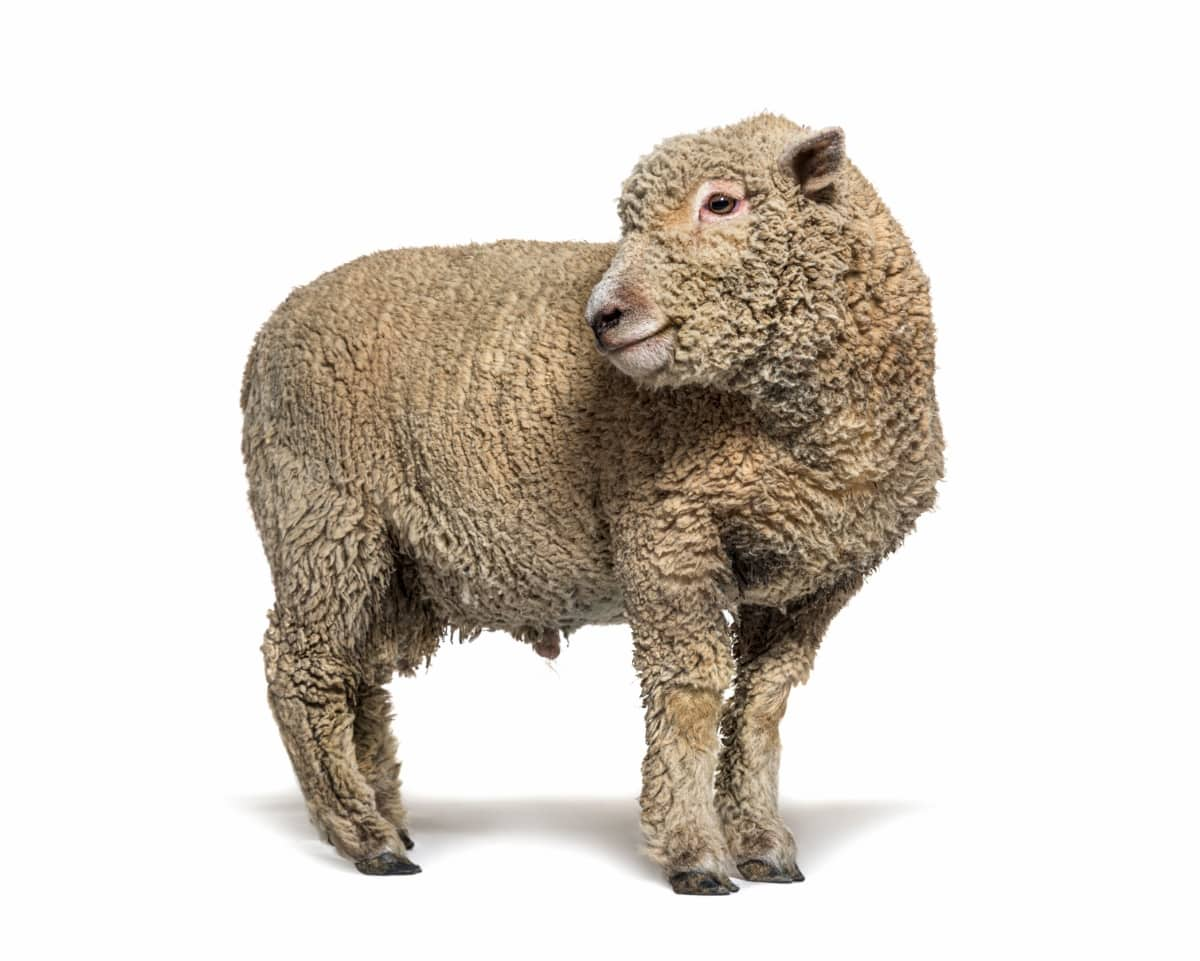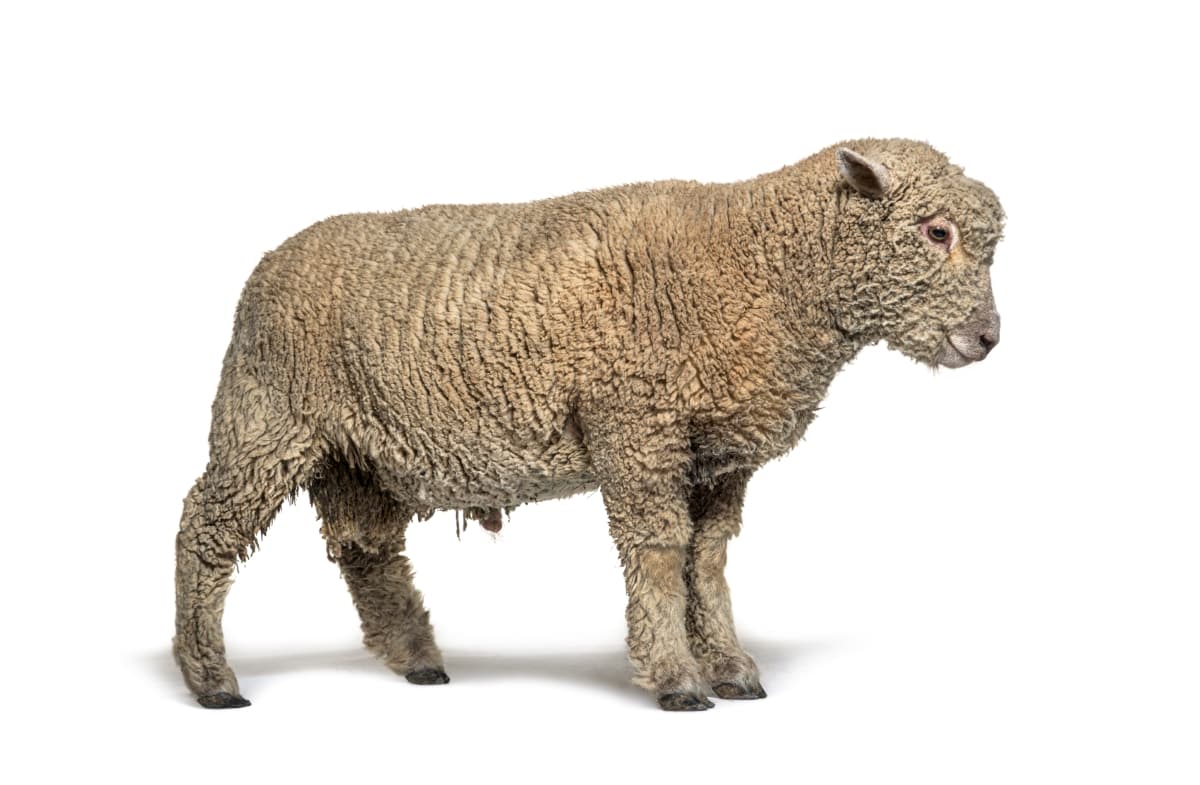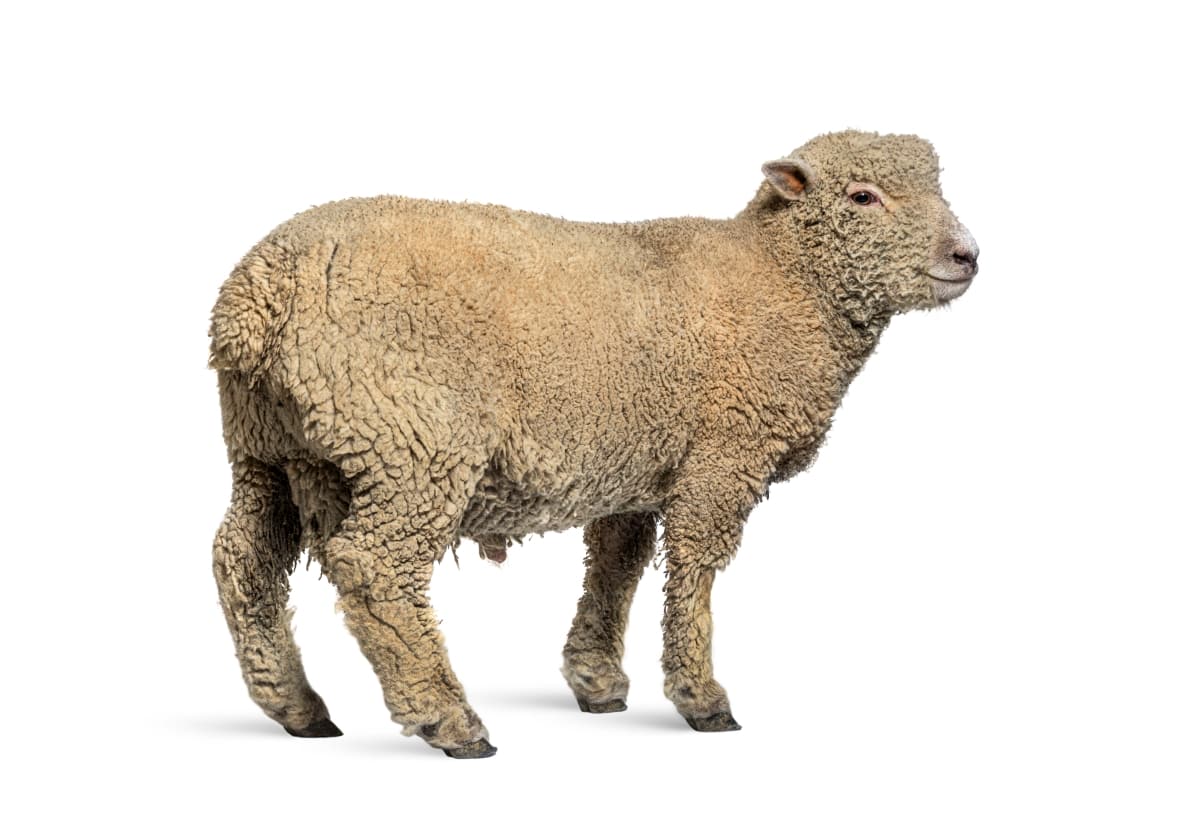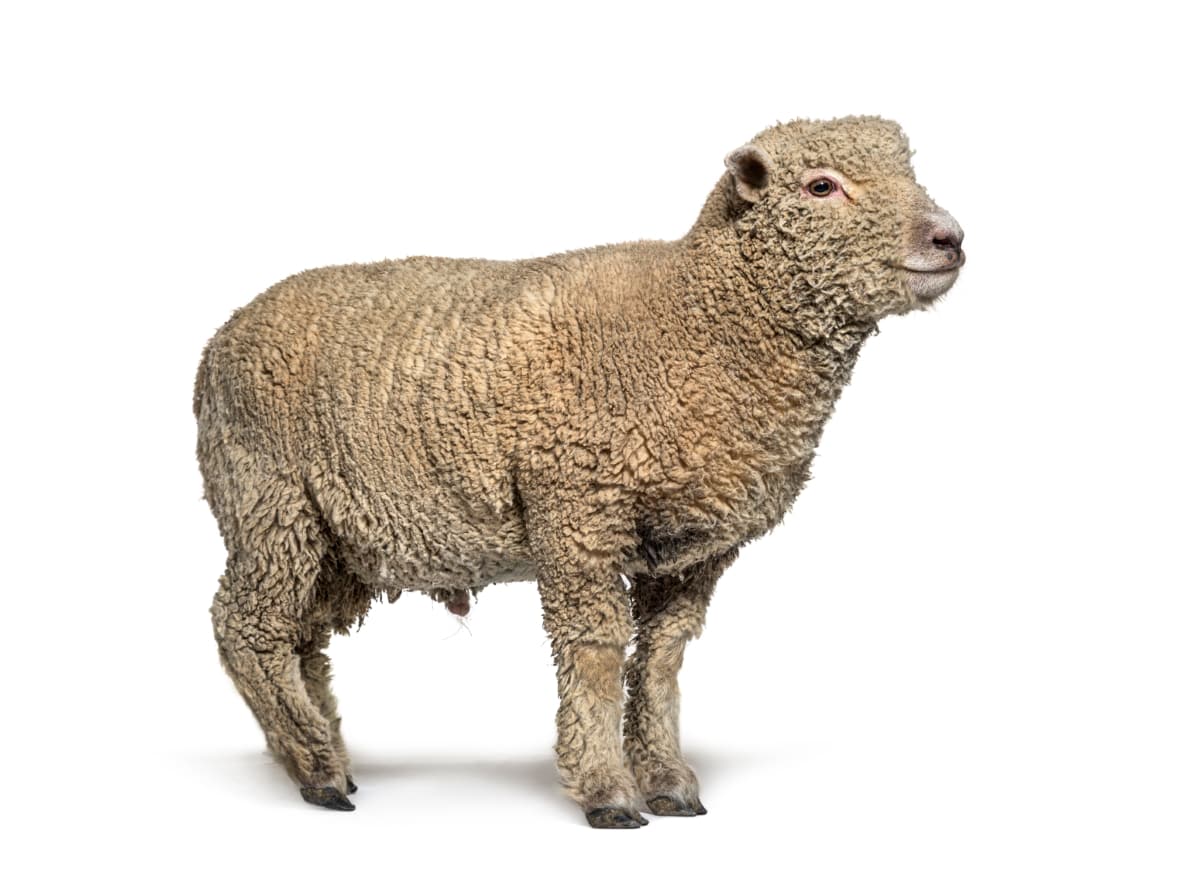Babydoll sheep have become quite popular in the farming community thanks to their adorable appearance and friendly nature. These pint-sized creatures originated from a breed of sheep known as Southdowns.

How to Raise Babydoll Sheep
Historical Background and Development
Originally from England, Babydoll sheep were imported to the United States in the 1990s. They are descendants of ancient European breeds that were carefully selected for their small size and friendly temperament.
Babydoll Sheep Price
Babydoll sheep can vary depending on factors like age, gender, and bloodline. On average, the cost of Babydoll Sheep is between $300 to $800 per animal. While this may seem pricey compared to other breeds, their unique characteristics make them well worth it.
Babydoll Sheep Size
These little cuties are generally more affordable compared to other livestock options. Their compact size is another appealing aspect – adult Babydolls typically stand around 18-24 inches tall at the shoulder.
Babydoll Sheep Lifespan
In terms of lifespan, well-cared-for Babydoll sheep can live up to 12-15 years or even longer. This means you’ll have plenty of time to enjoy their company and witness their playful antics throughout different stages of life.
Babydoll Sheep Weight
The unique characteristic of Babydoll sheep is their weight range. With an average weight between 60 to 125 pounds, they may be small compared to other breeds of sheep but still pack plenty of charm into their compact frames. Caring for Babydoll sheep involves providing proper nutrition, shelter from extreme weather conditions, regular veterinary check-ups, and ensuring they have access to fresh water at all times.
Physical Characteristics of Babydoll Sheep
Description of Appearance
Babydoll Sheep are undeniably adorable creatures. With their compact size and rounded features, they resemble fluffy teddy bears more than traditional sheep. These pint-sized animals have a distinctive appearance that sets them apart from other breeds.
Unique Traits and Features
The most unique trait of the Babydoll Sheep is their short legs. Unlike traditional sheep with long limbs, these little guys sport stubby legs that add to their charm. Their woolly coats come in various colors, including white, black, brown, and gray. Another feature of Babydoll Sheep is their ability to adapt to different climates. They are known for being docile and friendly animals that can easily bond with humans when raised with care and attention.
In case you missed it: Bergamasca Sheep: Raising Facts, Profile, Characteristics, Uses, and Care

Behavior and Temperament
Social Behavior and Personality
Babydoll sheep are known for their friendly and docile nature, making them a joy to have on the farm. They are highly social animals that thrive in the company of others, both human and animal alike. These adorable creatures have a calm demeanor and enjoy interacting with their owners. Babydoll sheep have been described as gentle, affectionate, and easy-going.
Compatibility with Other Farm Animals
Babydoll sheep generally get along well with different species. They can coexist peacefully with chickens, goats, horses, or even larger livestock like cows. However, it is important to introduce new animals carefully to ensure a smooth transition for everyone involved.
Habitat and Shelter Requirements
Designing a Suitable Living Environment
These adorable creatures may be small in size, but they still need a safe and comfortable living environment. Babydoll Sheep don’t need large pastures like other breeds, but having enough grazing area is essential for their diet and exercise.
Shelter and Fencing Needs
Shelter plays a significant role in protecting the sheep from harsh weather conditions. A sturdy barn or shed can provide them with shade during hot summers and protection against rain, snow, and wind during winter months. Fencing needs should not be underestimated when it comes to Babydoll Sheep. Choose strong fencing materials such as woven wire or electric fencing with a small mesh size to prevent any escapades.
Feeding and Nutrition
Basic Dietary Requirements
The basic dietary requirements for Babydoll sheep include high-quality grass or hay, fresh water, and mineral supplements. They are primarily grazers, so access to good pasture is essential. It’s important to ensure that the grazing areas are free from toxic plants, as Babydoll Sheep can be sensitive to certain varieties.
Supplements and Special Nutritional Needs
Some owners choose to supplement their sheep’s diet with grain or pelleted feeds specifically formulated for sheep. Special nutritional needs may arise during certain stages of a Babydoll Sheep’s life. Regular monitoring of body condition is vital when it comes to feeding Babydoll Sheep.
Health and Wellness
Common Health Issues and Prevention
Common health concerns for Babydoll sheep include parasite infestations, hoof problems, and respiratory infections. Health check-ups with a veterinarian are crucial to keep these issues in check. It is recommended to establish a good working relationship with a knowledgeable vet who specializes in small ruminants. Prevention plays a key role in maintaining the well-being of your flock. Implementing a strict deworming program will help control internal parasites.
Routine Veterinary Care and Vaccinations
Vaccinations are another important aspect of routine healthcare for Babydoll sheep. They should be vaccinated against diseases such as tetanus, clostridial diseases (such as enterotoxemia), and pneumonia caused by Pasteurella bacteria. Proper nutrition also contributes to overall health.
Breeding Babydoll Sheep
Breeding Age and Season
Breeding Babydoll sheep requires careful consideration of the right age and season. These adorable little creatures reach maturity at around 6 to 8 months for males and 7 to 10 months for females. It’s important not to rush their breeding process as this can lead to complications. Spring is generally the ideal breeding season for Babydoll sheep, as the warmer weather ensures better survival rates for newborn lambs.
Care for Ewes and Lambs
They should be given a well-balanced diet that includes high-quality hay or pasture grass along with minerals and supplements recommended by their veterinarian. As the due date approaches, ensure that you have a proper lambing area prepared. Once the lambs are born, they require special attention in their early days of life. Make sure they receive colostrum within their first few hours, which provides essential antibodies against diseases.
In case you missed it: The Ultimate Guide to Raising Swaledale Sheep: Care, Breeding, and Farming Tips

Wool and Fleece Management
Shearing Techniques
Shearing sheep is an important part of wool and fleece management. It helps keep the sheep healthy, prevents overheating in warm seasons, and ensures the quality of their wool. One common technique is hand shearing, which involves using electric or manual clippers to remove the fleece from the sheep’s body carefully. Another technique is machine shearing, where large mechanical clippers are used for faster and more efficient removal of the wool. This method is used in commercial settings where time is crucial.
Wool Quality and Uses
The quality of Babydoll sheep wool is highly valued due to its softness and insulation properties. The fiber diameter ranges between 19-24 microns, making it ideal for various uses, such as spinning into yarn for knitting or weaving projects. Aside from its textile applications, babydoll sheep wool also has other uses. Additionally, it can be processed into insulation material for homes or even used as a natural composting material.
Daily Care and Maintenance
Routine Check-Ups and Grooming
Routine health check-ups play a major role in monitoring the sheep’s health status. It is important to regularly inspect their eyes, ears, teeth, hooves, and coats for any signs of illness or injury. By catching potential issues early on, you can prevent sheep from escalating into more serious problems. Grooming is another aspect of caring for your Babydoll sheep. Regular brushing helps maintain a clean coat by removing dirt, debris, and mats. Additionally, it promotes healthy blood circulation while strengthening the bond between you and your sheep.
Managing Pastures and Rotation
Managing pastures involves ensuring that there is ample grazing space available for your flock. Regularly rotating them to fresh pasture areas prevents overgrazing in one spot while allowing vegetation to regrow naturally. This practice also minimizes the risk of parasite infestations since parasites tend to accumulate in heavily grazed areas.
Economic Aspects and Market Potential
Selling Wool and Other Products
The most sought-after product from these adorable creatures is their wool. With its soft texture and high quality, Babydoll sheep wool is highly valued in various industries. It can be used for crafting luxurious garments, blankets, pillows, and even yarn for knitting enthusiasts. Selling Babydoll sheep wool can be a lucrative business venture.
The Role of Babydoll Sheep in Agrotourism and Sustainable Farming
Babydoll sheep also present an exciting opportunity in agrotourism. Many people are drawn to farms where they can interact with cute animals while enjoying a peaceful countryside experience. The role of Babydoll sheep in sustainable farming cannot be overstated. These small-sized grazers have a gentle impact on pastures compared to larger livestock breeds.
In case you missed it: Everything about Devon Longwool Sheep: Characteristics, Uses, and Raising Facts

Conclusion
Babydoll sheep are known for their gentle and docile temperament. Babydoll sheep are a smaller breed, which makes them ideal for small-scale farming operations or hobby farms with limited space. Today, they have become popular as pets, lawnmowers, and even therapy animals.
- Feed Your Flock for Less: Top 10 Tips to Save on Chicken Feed
- Ultimate Guide to Ossabaw Island Hog: Breeding, Raising, Diet, and Care
- Hatching Answers: The Top 10 Reasons Your Chickens Aren’t Laying Eggs
- Eggs and Economics: Breaking Down the Cost of Raising Backyard Chickens
- Defend Your Greens: Proven Methods to Keep Iguanas Out of Your Garden
- Ultimate Guide to Cinnamon Queen Chicken: A Comprehensive Guide for Beginners
- Ultimate Guide to California Tan Chicken: Breeding, Raising, Diet, Egg-Production and Care
- Ultimate Guide to Marsh Daisy Chicken: Breeding, Raising, Diet, and Care
- 10 Types of Chicken Farming Businesses You Can Start for Profits